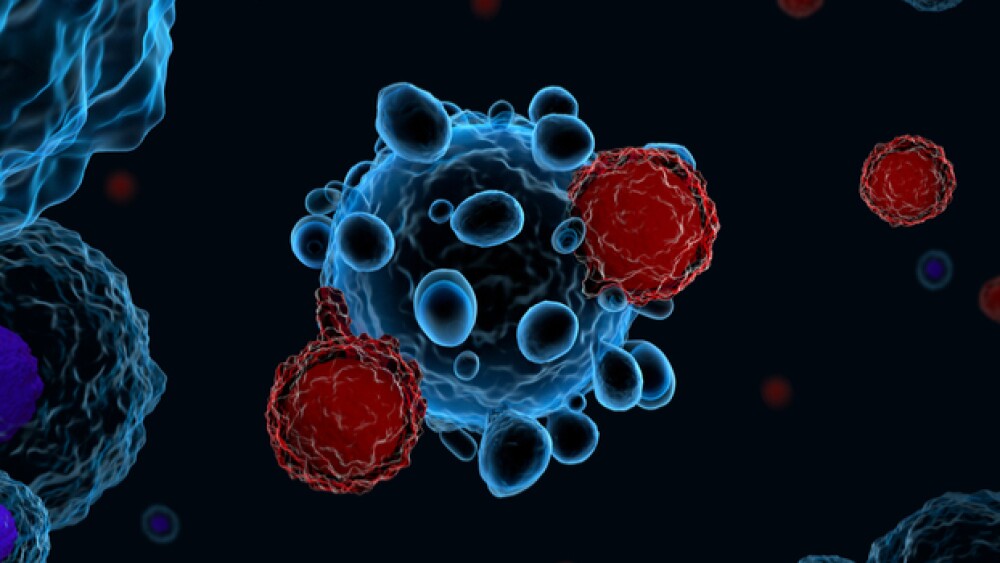Celgene Corporation and bluebird bio published interim data from CRB-401, their Phase I trial of bb2121, their CAR-T therapy in patients with relapsed and refractory multiple myeloma.
Celgene and bluebird bio published interim data from CRB-401, their Phase I trial of bb2121, their CAR-T therapy in patients with relapsed and refractory multiple myeloma. The results were published in the New England Journal of Medicine.
In the trial, patients with r/r multiple myeloma who had received at least three previous lines of therapy, including a proteasome inhibitor and an immunomodulatory agent, or were refractory to both drug classes, received a single infusion of several different doses of bb2121. The primary endpoint was safety.
The data cut-off was April 30, 2018, and manageable safety and deep and durable responses were observed in the first 33 patients receiving the BCMA-targeted CAR T-cells. The most common grade plus or greater than 3 events were hematologic toxicities, including neutropenia, leukopenia, anemia and thrombocytopenia. There were neurotoxicity events of all grades in 14 patients, with 13 less than grade 2 and one patient had grade 4 neurotoxicity that resolved within a month. Twenty-five, or 76%, of the patients experienced cytokine release syndrome, a common infusion reaction to immuno-oncology therapy.
On the efficacy side of the study, 85% of patients receiving bb2121 had an objective response rate (ORR) and 45% had a complete response (CR). Another 27% had a very good partial response (VGPR).
However, six of the CR patients have since relapsed, with an average response time of about 11 months overall and PFS just under a year. “We are encouraged by the expansion and persistence of the CAR T-cells,” stated the trial’s principal investigator, James Kochenderfer of the U.S. National Cancer Institute (NCI), “as well as the deep and durable responses with a manageable safety profile we’ve seen for bb2121 to date.”
The side effects are quite common and generally viewed as a challenge with CAR-T therapies, but they were found to be manageable. This could potentially open the door to the therapy being used in an outpatient basis, although even the existing approved CAR-T therapies, Novartis’ Kymriah (tisagenlecleucel) and Gilead Sciences’ Yescarta (axicabtagene ciloleucel), require facilities with special training and certification. In some cases, the procedures are performed in-patient with mandatory one- to two-week hospital stays. Others can be conducted on an outpatient basis. But those decisions depend partially on the specific CAR-T therapy used and partially on the individual patient.
“These data from CRB-401 demonstrate that BCMA is a promising target in the treatment of patients with multiple myeloma,” stated Alise Reicin, president, Global Clinical Development for Celgene. “We continue to be encouraged by the potential of bb2121 as a first-in-class BCMA-targeted CAR T-cell therapy. The compelling data in these heavily pre-treated relapsed/refractory patients has provided important insights in the development of bb2121 as we continue the follow up of patients in our recently fully enrolled pivotal KarMMA trial. We are also evaluating the potential for bb2121 in earlier lines of multiple myeloma treatment in the other KarMMA trials.”
Bb2121 is currently in a Phase II trial called KarMMA. Enrollment wrapped in November 2018 and if everything goes well, the companies may file with the U.S. Food and Drug Administration next year. But they’ll have to move quickly. In addition to the two CAR-T products on the market, Novartis/Poseida’s P-BCMA-01 and Johnson & Johnson’s LCAR-B38M, GlaxoSmithKline’s antibody-drug conjugate (ADC) GSK2857916 and Amgen’s bispecific antibody AMG 420, are in development for related indications. And there are reportedly 38 clinical-stage BCMA-targeted therapeutics in developments, 27 CAR-T products, six CD-3 targeted bispecifics, three ADCs and a single cell therapy and monoclonal antibody.





